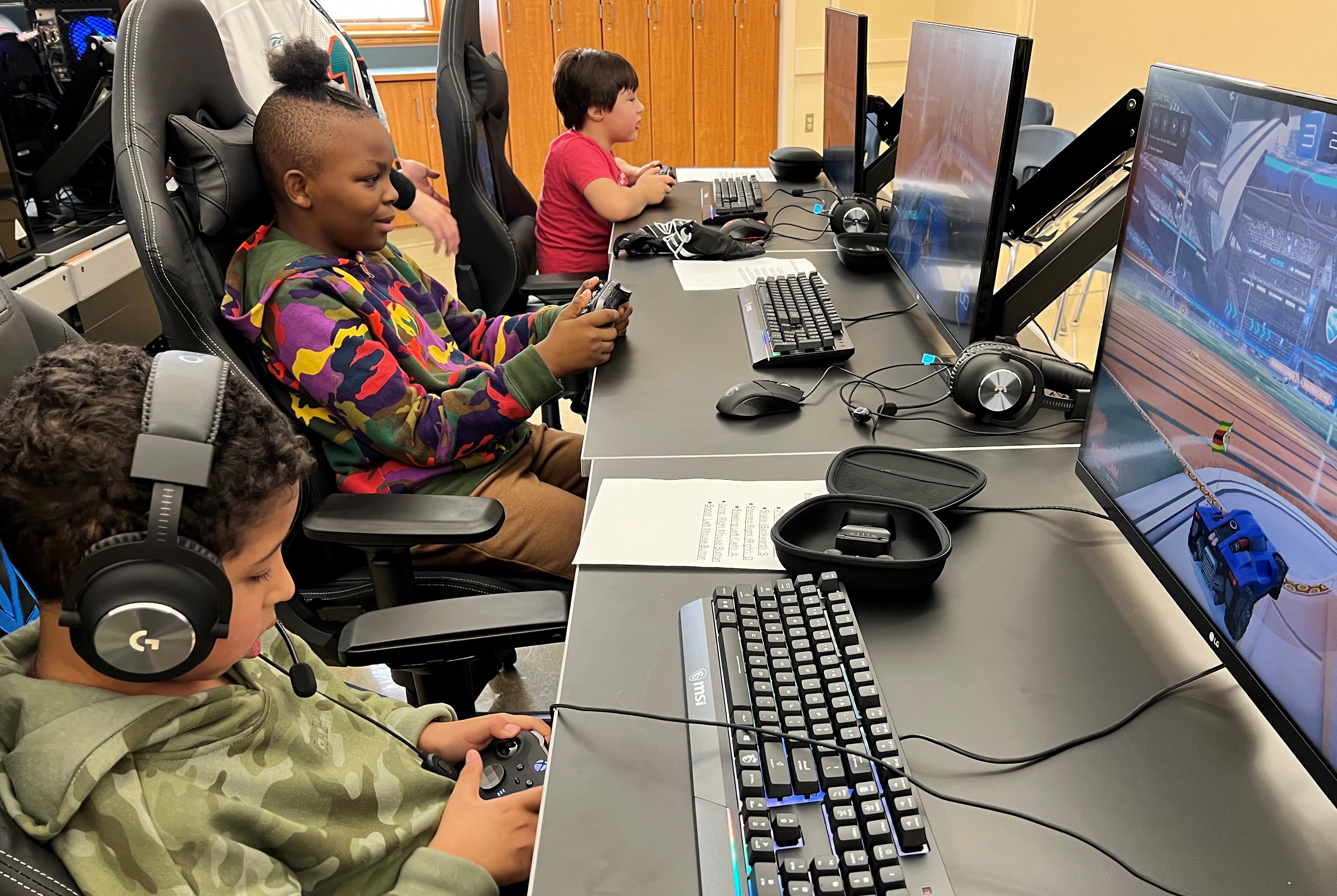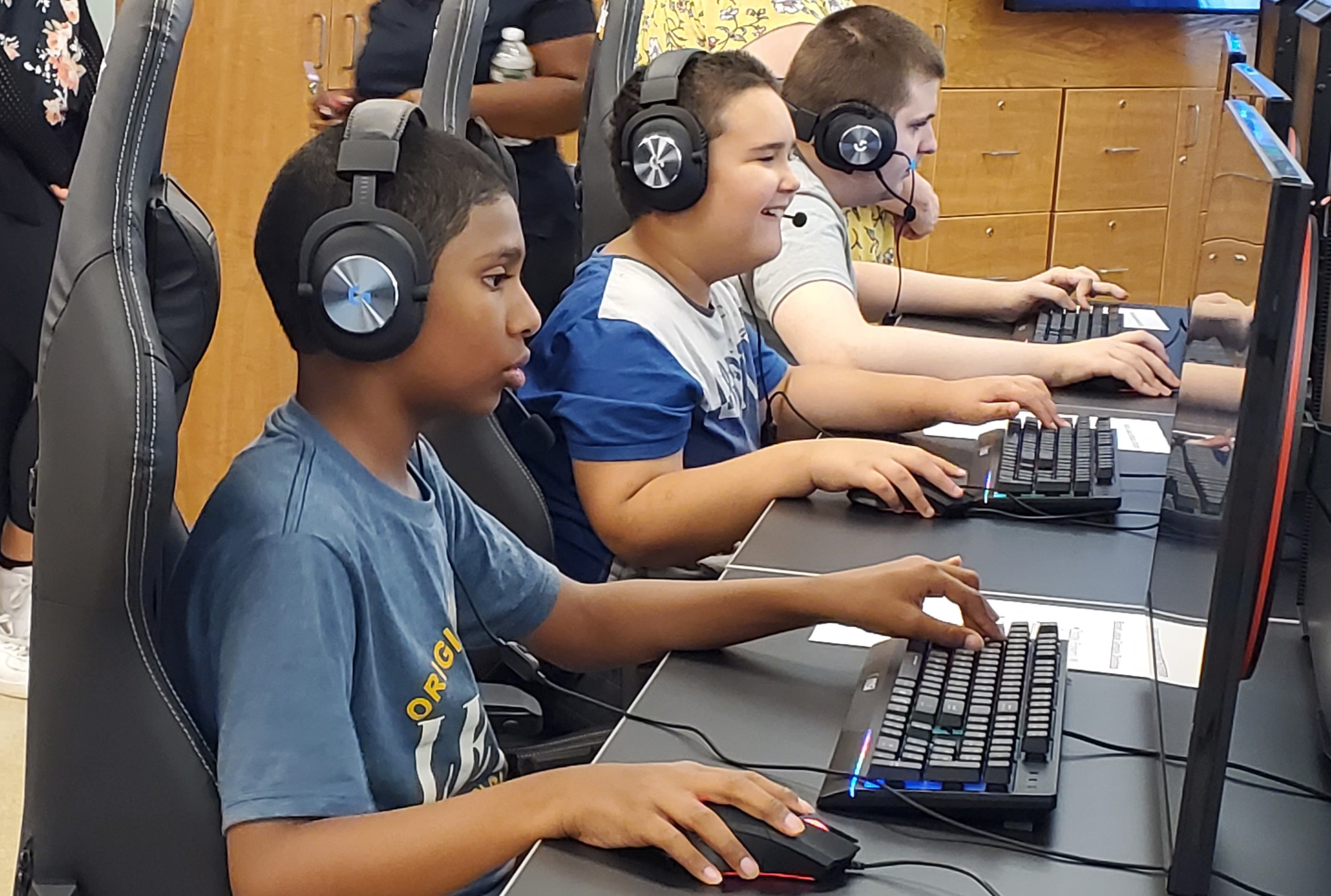An Esports Arena for All Abilities to Shine
The Development Learning Center of Warren’s esports arena has been designed for students with autism and autistic-like behavior

Tools and ideas to transform education. Sign up below.
You are now subscribed
Your newsletter sign-up was successful
Offering a wide variety of experiences and enrichment activities in and out of the classroom for students of all abilities is key to leveling the playing field. Esports, in particular, can provide engaging opportunities to help all students build skills such as collaboration, critical thinking, communication, and problem-solving.
Dr. Janet Fike, superintendent of the Morris-Union Jointure Commission in New Jersey, as well as her passionate team (including Evan Abramson and Denise Smallacomb) at the Development Learning Center of Warren, discuss adding esports to the Center’s impressive offerings for students with autism and autistic-like behavior.
Esports & Autism: If You Build It, They Will Benefit!
It is one thing to create innovative programming that can be adapted for students of all abilities, but inspired by a dream of what could be, Fike’s team put their grant money where their mouth was and built an esports arena to give students the full experience.
“We were the grateful recipients of a $50,000 grant and whenever we get donations, we like to put it to purposeful things we can remember, that are evergreen and last forever,” says Fike. “We started to talk about building a dream—building an esports arena. Last summer we opened this amazing facility. All typical kids play, the goal was to be able to give the students an option for something that’s normal.”
It was this type of progressive thinking and belief in students that led to the country’s first arena dedicated to esports for kids with autism and autistic-like behaviors.
“There are so many things people think our students can’t do, so they are immediately discounted,” says Fike. “But some of our students are very fluent in technology and became enthusiastically involved in the project. For me it became a leveler. Our kids can compete. It’s been wonderful. Our kids proved all the naysayers wrong, as they often do. If we listen to naysayers, we are never going to be better than we are. We didn’t and I credit it to Evan Abramson who kept saying. ‘We can do it, they can do it!’”
A Dreamer Become a Designer
New to the district, Abramson had no preconceptions about what could or couldn’t be done and fully believed in the students from his earliest days.
Tools and ideas to transform education. Sign up below.
“He bonded with students and talked with them—they already knew the lingo and he kept telling them we are going to build this and the kids got so excited,” says Fike. “The important thing is we can’t listen to people who say our kids can’t do things. We have to keep pushing that envelope.”
“They jumped in immediately,” says Abramson. “We had to first get our staff to believe our students were capable. We approached the teachers first and got them excited about the program. We brought them out to a college esports to actually play so they could see what was possible. Once they believed, we had each teacher bring their kids up into the lab. Certain students would be really successful, some would be okay, some it just wasn’t a fit which is fine and what we expected.”
The district averages 60 to 65 students coming into the arena on a weekly basis.
“A lot of people told us we were crazy when we started doing this, that we had no idea what we were doing,” says Fike. “We heard a lot of ‘they can’t do it’, what are you thinking, it’s a waste of money. We just quietly said, ‘We’ll see, just watch us.’”

Start Small for Success
An important element of successfully rolling out the esports program was to involve all students in the effort, regardless of age or level. After all, even MLB players don’t walk into a 30,000 seat stadium to first try their hand.
The district has two buildings, one serving PreK-5 and the other grade 6 and up, which is where the arena was built.
“We built a “training center” in the PreK-5 building,” says Abramson. “We wanted to get our students building those soft skills involved in being on a team from a younger age— teamwork, communication—skills they might not typically get to do on a daily basis. In the training center, we use Nintendo Switches. They are playing collectively on a much smaller scale so when they do go to the Warren arena, they are ready to go in and play.”
This approach allows the district to prepare students for a future comfortable experience in the larger arena, devoid of too much stimuli which could be distracting or create a stressful environment. Younger students who are excelling can also visit the large arena.
It Takes a Village to Build an Esports Program
An integral part of DLC-Warren’s success has been partnering with others in their own community and others.
“Denise has connected with other schools in the area who have esports teams and they come over and engage with our students,” says Fike. “This is right in so many elements. And our students can finally go home and do something that their typical sibling engages in.”
“We never know what the potential of our students is until we try it,” says Smallacomb. “Society tends to not offer everything to all students equally, so we need to. It lets us see where a child’s interest lies, because it is very easy not to offer access to the same things as their peers. We can then see where they can go with it.”
Smallacomb says simply playing esports is not the only avenue to find success or enjoyment for students. Even if they can’t be fully independent in playing, they can watch a meet or take part in other ways.
“There are so many careers related to esports and in the esports world,” says Smallacomb. “Our students can have a hard time being out in public or doing things with a lot of stimuli or unfamiliar people watching. What is really great about esports is they can produce a game or moderate a tournament from the comfort of their own home and environment. It’s perfect for our students, they can be successful in a way that feels good for them.”
The district is also trying to form a partnership with a local university who has video production equipment as well as connect with the local public school district discussing how students can write about matches in the school newspaper or learn about marketing of the team, with a goal of becoming a fully productive esports team. Being able to go into an arena at that university level and even watch it offers an excitement for students almost as much as actively playing it.
“The conversations they have with each other when they are playing on the same team with each other, it's so gratifying to see,” says Smallacomb. “When our parents came in for the opening, the parents and siblings of the students eyes were really opened and you could see them almost tear up— it was the first time they could see their sibling as someone they could play with on the same level skillswise, exposing them to so many different avenues.”
“It’s all about innovation,” says Fike. “We don’t want our kids left behind, and if we continue to play Candyland and board games, it makes them look different from everyone else. We have been creative and tried to be innovative with not only esports—our kids do yoga and martial arts.”
Simply, they let the kids play.
“They might do things differently, they might struggle in some areas where typical kids would not, but they can get there in their own way,” says Fike. “I see a lot of people buying into ‘they can’t do this.’ To listen to that would be taking away an opportunity for these students they will never have again to show what they can do.. We blew the stereotype out of the water and I am so proud of that.”
Dr. Janet Fike will be a presenter at Tech & Learning’s upcoming regional leadership summit in New Jersey.
Sascha has nearly two decades of experience as a freelance journalist writing for national magazines, including The Washington Post, LA Times, Christian Science Monitor, National Geographic Traveler, and others. She writes about education, travel and culinary topics.

